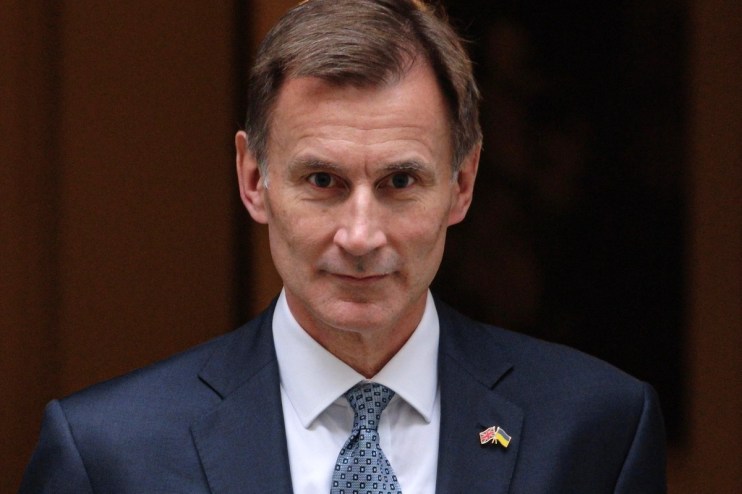
Jeremy Hunt will cut national insurance rather than income tax in next week’s Spring Budget, according to reports, but he will not have a huge amount of fiscal space to do so.
With the Conservatives trailing Labour by around 20 percentage points, Hunt is under a lot of pressure to announce crowd-pleasing tax cuts next week to revive his party’s electoral prospects.
The Chancellor has repeatedly stressed his determination to bring down the tax burden, which is on course to rise to record levels no matter what Hunt announces in the Budget.
The Times reported that the two main tax cuts being weighed up are a one percentage-point reduction in national insurance, costing about £4.5bn a year, and an extension of the fuel duty freeze, costing £1bn a year.
Although Hunt had been weighing up a 2p cut to income tax, which would cost over £13bn, this now looks too expensive given changing market expectations on interest rates.
Research from Dutch bank ING suggests that Hunt will have about £18bn in headroom to meet his key fiscal target of having debt falling in five years time. While this is up slightly from £13bn in November, it is significantly below estimates from just a few weeks ago due to changing interest rate expectations.
Markets now think that the Bank of England will cut interest rates more slowly than was thought at the beginning of the year, which will keep the cost of government borrowing high.
“The reappraisal of Bank of England rate cuts in financial markets means the money available for giveaways has dwindled over the past few weeks,” analysts at ING wrote.
The analysts said that investors are “keeping an eye on UK fiscal risk”. Although the situation today looks “very different” to the Truss mini-budget in Autumn 2022, “fresh tax cuts could still apply some upward pressure on yields”.
In a report released today the IFS warned said that if the Conservatives wanted to cut taxes, then they should provide more detail on how government spending would change after the election.
A number of economists have argued that Hunt’s post-election spending plans are unrealistic, as it will impose significant real terms spending cuts on already struggling government departments.
“Until the government is willing to provide more detail on its spending plans in a Spending Review, it should refrain from providing detail on tax cuts,” Martin Mikloš, a Research Economist at IFS and an author of the report, said.